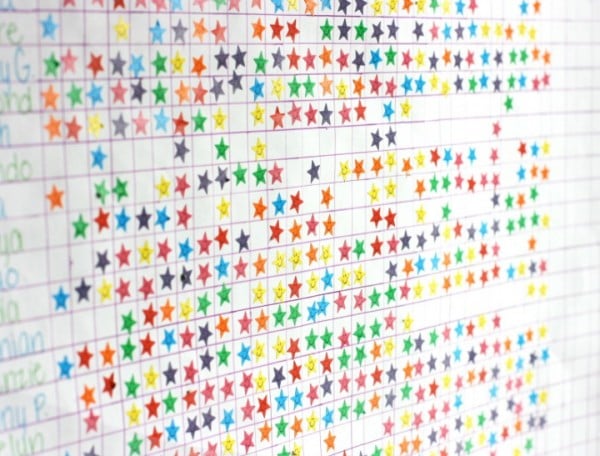
We’ve been doing a sticker chart with my six-year-old to get him to finish his homework. Each day when he completes his readers and his spelling sheets he gets a sticker. After five stickers he gets a packet of much coveted Pokémon cards.
He is a bit of a reluctant reader and by competing his tasks he is starting to find the process easier.
Its been working well.

Well, it had been working well.
All was going along hummingly when yesterday we hit a “sticky” spot.
































































































